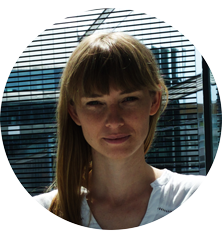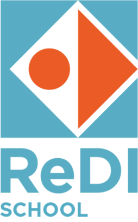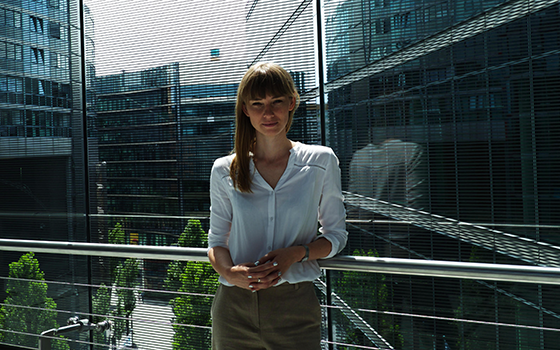Practitioner of the moment: ReDI school of digital integration
Practitioner of the Moment
An interview with Anne Kjær Bathel*, CEO and co-founder ReDI School of Digital Integration |
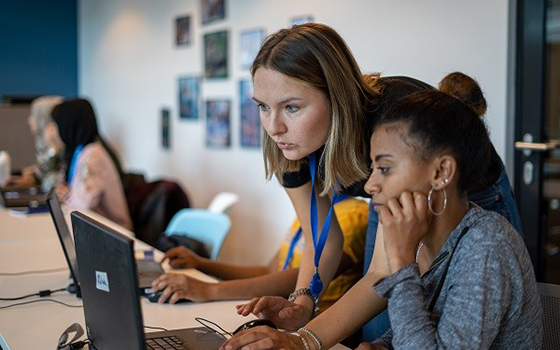 |
Can you tell us a bit about how and why you started the ReDI School of Digital Integration? In the middle of the so-called “refugee crisis” in 2015 I was visiting a refugee camp in Berlin. Here I met Mohammed, who was in his mid-20s and had a bachelor’s degree in computer science from the University in Baghdad. He was eager to get to work – but afraid that he was losing his coding skills because he did not have a laptop. Coding develops so fast that the saying goes “If you don’t use it – you lose it”. At the same time– already back then – there were 42 000 available jobs in the German IT industry. Today, there are 86 000! The German industry is losing out on billions of euros every year due to lack of access to IT talent. They even pay to recruit senior IT talent from around the world to come to Germany. So why not train the talented that are already in Germany? Hence, ReDI School was born as a win-win-win situation. Good for refugees getting into jobs faster. Good for Germany companies getting access to a diverse talent pool. Good for Germany turning beneficiaries of social benefits into taxpayers, faster and cheaper than existing initiatives.
|
|
One of the main problems we see when working with refugees or other vulnerable groups is that it is often not easy to reach those who would benefit the most from education and training. What is ReDI’s outreach approach to its target group? Co-creation is the key to ReDI’s success! From day one, we have had the mantra “Stop talking about refugees – Start talking with refugees”. In the first meeting, it was Mohammed and myself. In our second meeting, we both brought two friends. Then we were six. Next time, they brought their friends. In this way, we had significant growth both on the sid of locals, as well as on the the side of newcomers. This integration at eye-level and participatory development of our courses means that our students feel a high degree of ownership in the school and the courses. This results in 70% of our new students saying that they were recommended to join ReDI School by friends or family (aka our former students). Currently we have around double the amount of applicants for our courses as we have seats in the program. Reaching our students is not really a challenge – our challenge is funding so we can provide more courses. |
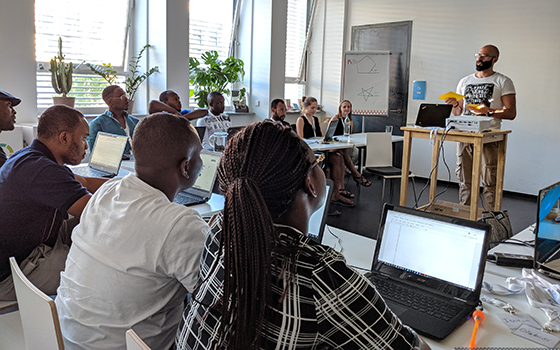 |
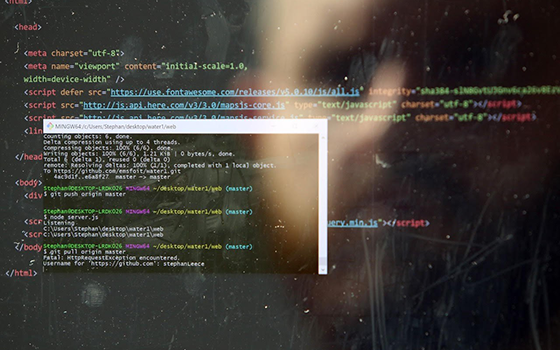 |
The demand for coding and programming courses offered by ReDI School is high. How does this affect scalability? What are the bottlenecks you face to make courses available to a larger group, and how do you overcome them? Bureaucracy is a real bottleneck for us. Our unique selling point is actually also our biggest challenge! ReDI School works with 500+ volunteers from the IT- and start-up industry as volunteer teachers and mentors. They come from 180+ companies. The IT experts ensure that what is taught is state-of-the-art in the tech industry. Furthermore, the IT-experts function as door openers for the students to get a foot in the door to companies. The volunteer teachers know exactly which students have high motivation and a steep learning curve, making it is easy for them to introduce their students to the HR departments in their companies. This is one of the reasons why 75% of ReDI School alumni from our Digital Career program are now in paid jobs. The majority of those, working directly in the tech industry! But… to receive job centre vocational vouchers** in Germany you need to have certified, paid teachers, full-time courses, Monday-Friday, within working hours. This impact logic is particularly flawed when dealing with the tech industry! The ReDI School’s user-centred model working with industry volunteers teaching evening – and weekend courses– works faster and cheaper! We have six years of evidence to show this.
|
|
What are some more general lessons you learnt over the past years that you would like to pass on to others who want to start similar programmes in their own communities? Look for partners inside the system to help you navigate through the bureaucracy and find sustainable funding. Four years ago, the Municipality of Munich asked ReDI School if we could open a new school there with their support. We were able to set up an impact-driven partnership model, where the municipality pays for five full-time ReDI staff. In return, ReDI needs to teach at least 100 migrants per year. The municipality’s support gives ReDI a stable platform to work from, and thus we can set up additional partnerships with companies and foundations to further support our shared mission of job market integration. Currently we are teaching 450+ students per year in Munich. The municipality gets four times more integration for their money! This is a model I would love to scale to municipalities around the world! Visit the ReDI School of Digital Integration website
*This interview was conducted with Anne Kjær Bathel in the framework of the OECD’s Local Development Forum. The opinions and arguments expressed herein are those of the interviewee and do not necessarily reflect the official views of the OECD or its member countries. **A Bildungsgutschein is an education voucher provided by the Agentur für Arbeit (Federal Employment Agency) that allows people to join an educational programme and have (some of the) costs paid through government funds. |
|
Published: November 2021
Related Documents
- OECD Local Development Forum: Featured Practitioners
- OECD workshop on how cities are preparing for the future work
- OECD Local Development Forum: Practitioner of the Moment: Hope Programme
- Future-Proofing Adult Learning in London, UK
- OECD Local Development Forum: Practitioner of the Moment: Open doors
- OECD workshop on the Future of Local Employment Services
- OECD workshop on Preparing for the Future of Work in Canada
- Launch of the OECD report Job Creation and Local Economic Development 2020: Rebuilding Better
- Practitioner of the moment: Up Group


